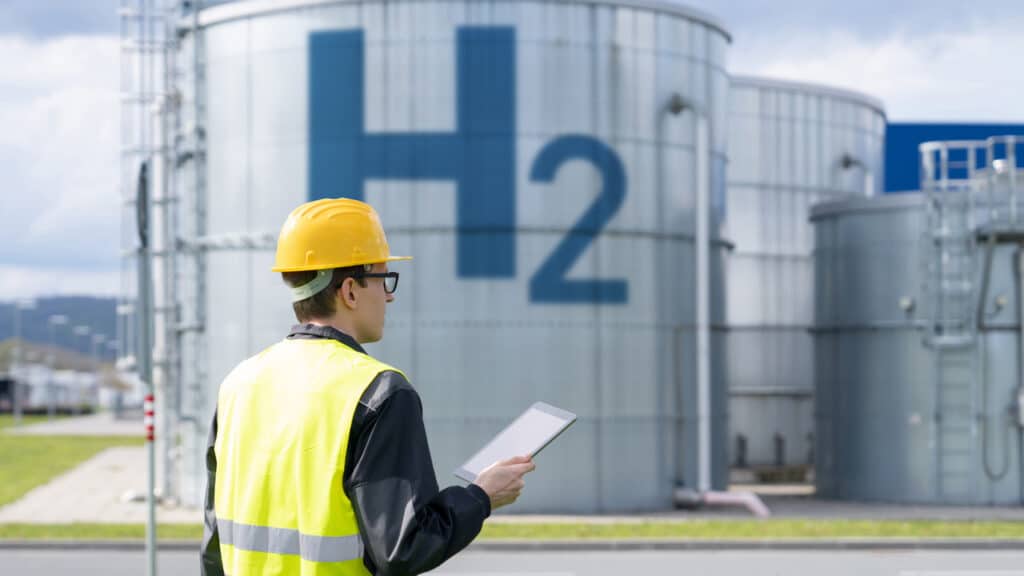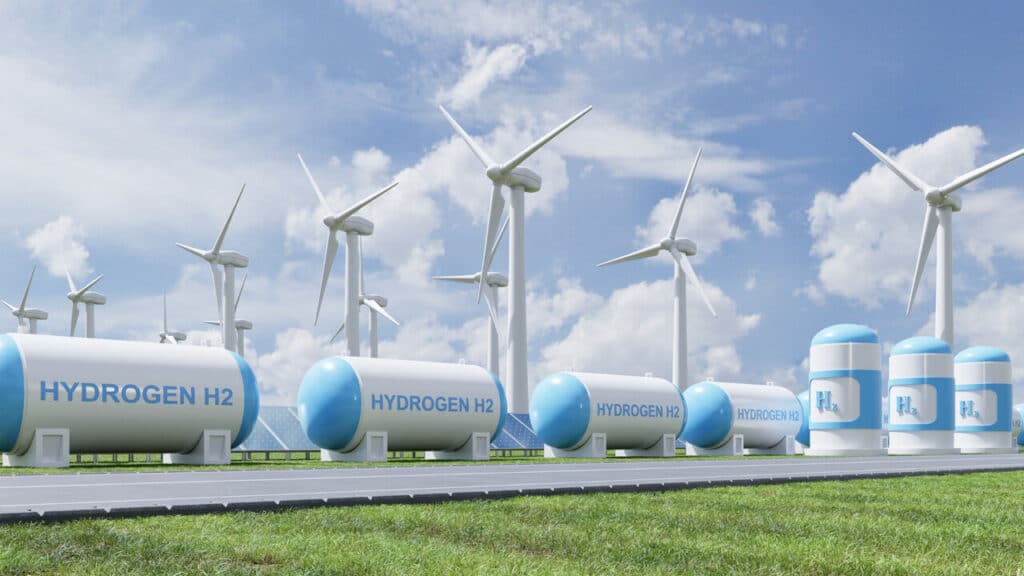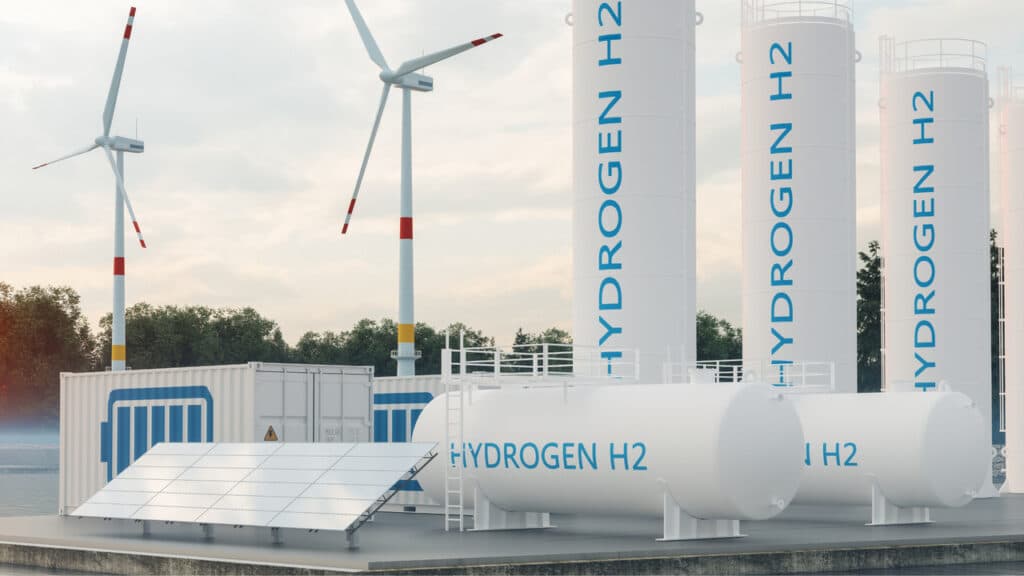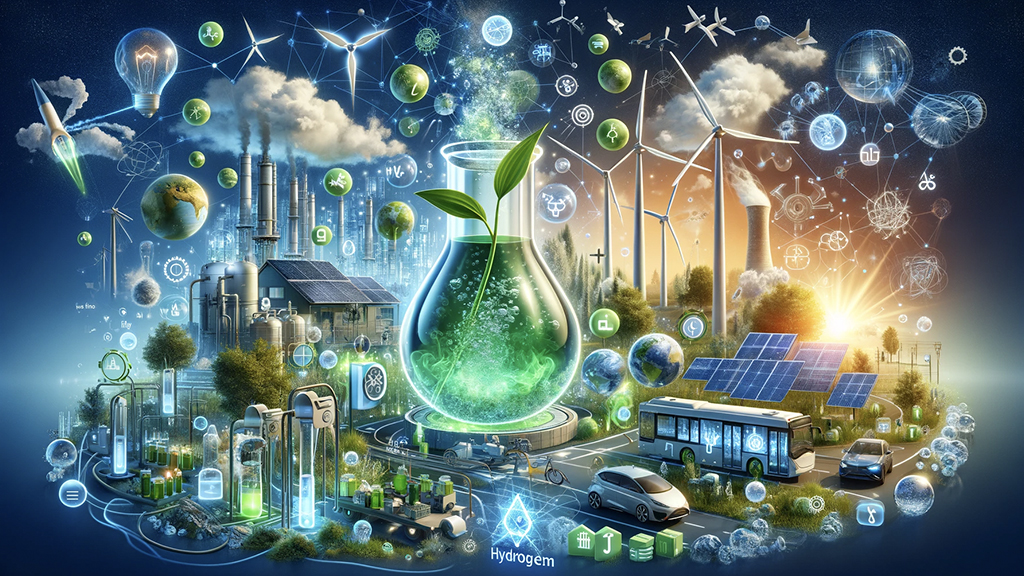What is Green Hydrogen?
Green hydrogen refers to hydrogen produced using renewable energy sources such as solar or wind power through the process of water electrolysis. Unlike traditional hydrogen production methods, which rely on fossil fuels, green hydrogen allows for the reduction of greenhouse gas emissions and the carbon footprint. It is a step towards more sustainable and environmentally friendly hydrogen production, which can significantly contribute to combating climate change and reducing dependence on fossil fuels.
How is green hydrogen produced?
This exciting energy development is generated through water electrolysis, a process that uses electricity from renewable sources (RES), such as wind, solar, or biomass. During electrolysis, pure water is split into hydrogen and oxygen. The hydrogen produced in this way is green because it is not generated using fossil fuels, but rather renewable energy. This is a promising step towards a more sustainable energy future!

3 Advantages of green hydrogen
Green hydrogen, as a form of hydrogen produced using renewable energy sources, offers many benefits:
- Cleanliness – Renewable hydrogen is clean and does not emit carbon dioxide or other greenhouse gases during combustion. This is crucial in the fight against climate change and environmental protection.
- Versatility – Green hydrogen can be used in many fields. It can power vehicles, heat buildings, store energy, or serve as a raw material for producing other fuels such as ammonia or methanol.
- High Energy Density – It is efficient because it has a high energy density. This means more energy can be stored and transported in a smaller space compared to other fuels.
Introducing green hydrogen into our energy ecosystem can contribute to a sustainable future and reduce greenhouse gas emissions.
Importance of green hydrogen production

The significance of green hydrogen production is crucial for many aspects of the global energy transition and the fight against climate change. It is considered one of the main pillars in achieving climate neutrality. The vision of a sustainable energy future assumes that green hydrogen can play a significant role in reducing greenhouse gas emissions by replacing traditional energy sources.
Challenges in renewable hydrogen production
The International Energy Agency (IEA) highlights that green hydrogen has the potential to cover up to 19% of global energy demand by 2050. However, to achieve this, several technical, political, and economic conditions must be met, including:
- Continuous reduction of production and distribution costs of green hydrogen through the development and scaling of appropriate technologies, infrastructure, and markets.
- Increasing investment and support from both the public and private sectors to enable large-scale development of green hydrogen projects.
- Establishing common standards and regulations for the quality, safety, and sustainability of green hydrogen production and use at both national and international levels.
In this way, green hydrogen can become a strategic element of the future global energy infrastructure, contributing to the reduction of greenhouse gas emissions and the achievement of sustainable development goals.

Hydrogen Storage Tanks at a Wind Farm
Green hydrogen international – the fuel of the future in Global Energy
Renewable hydrogen is an innovative energy resource with the potential to change the face of global energy. Its production and use can have a huge impact on reducing greenhouse gas emissions and improving the quality of life for people worldwide. As a company engaged in the Climate Tech sector, we aim to set new standards in sustainable development and actively promote green hydrogen as a key element of the energy transition.
Electrum and the energy revolution
Our role as a participant in this energy revolution does not end with declarations – we are involved in practical actions that accelerate the development of green hydrogen infrastructure in Poland. We support innovative R&D projects aimed at improving the efficiency of green hydrogen production and distribution. Our partnerships, both nationally and internationally, allow us to collaborate with leading scientific institutions, technology companies, and governments to jointly develop green hydrogen infrastructure.
Learn About Our Mission: Who We Are – Electrum Holding
Summary – Is it worth investing in green hydrogen?

We are convinced that investing in green hydrogen is not only a step toward achieving climate goals but also an opportunity to create new jobs, develop modern technologies, and increase energy independence in many regions. Therefore, we strive to raise public awareness of the benefits of green hydrogen and promote its widespread use in various sectors of the economy.
Read also: Energy Storage Methods in the RES Industry
Through our commitment to the development of green hydrogen, we aim to be a driving force in the energy transition, bringing real benefits both to the natural environment and society as a whole. We believe that green hydrogen is a key element in the fight against climate change and an essential component on the path to a sustainable energy future.
Contact Us Contact – Electrum Holding


 The Impact of Energy Efficiency on Industry and the Environment
The Impact of Energy Efficiency on Industry and the Environment